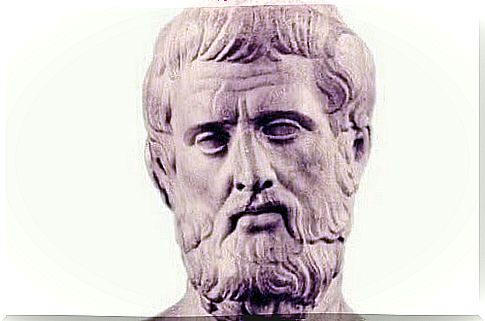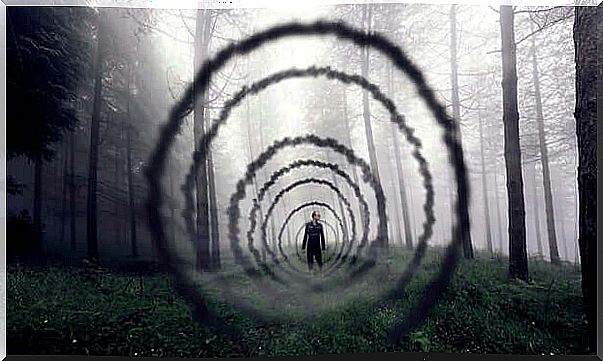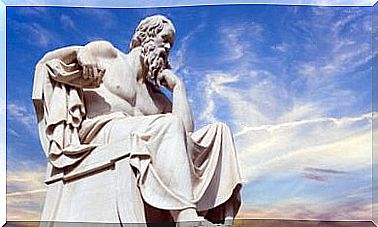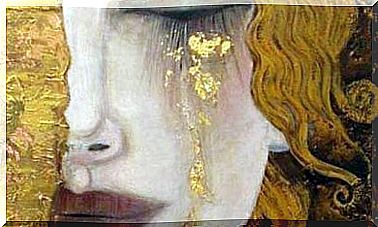Phrases Of Homer, Genius Of Ancient Poetry

Many of Homer’s phrases are extracted from the two great epic works of the Greek poet: the Iliad and the Odyssey . We refer to the most important works of ancient Greece. And although they tell of fictional events, for a long time they were believed to contain real facts.
Homer’s life is full of mysteries. There is still no agreement, in fact, on its historical existence. The hypothesis is that it is an invented character, to whom the authorship of the two great epics has been attributed, which would have been written by several Greek poets whose traces have been lost.
However, many of Homer’s phrases , or whoever for him, have survived intact to our day. They reveal great sensitivity, genius and wisdom. We publish seven of the most famous.
7 phrases from Homer
1. The genius
It is undoubtedly one of Homer’s phrases most current, despite being written eight centuries before our era. Thus he says: ” adversity reveals genius and prosperity conceals it “.
The poet refers to the fact that difficult times bring out virtues and abilities that are ignored until the present moment. Adversity pushes us to the limit and it is in that limit that the forces often hidden within us manifest themselves.

2. Share the burden
Many of Homer’s phrases allude to collective realities, such as family, homeland or circle of friends. The poet attached great importance to these aspects. Something inevitable for those who, like him, were the bearers of the ideals of ancient Greece.
One of his phrases reads: ” The task is light when many share the effort “. In other words, feeling part of a community helps to experience loads more lightly.
3. The wound depends on who inflicts it, the phrases of Homer
One of Homer’s most beautiful phrases reads as follows: ” The arrows of cowards are always blunt “. It refers to the fact that a wound, in a physical or figurative sense, hurts in relation to the qualities of the abuser.
It is a call to evaluate the damage according to who produces it. This means that it is not worth suffering from the wounds inflicted by someone from whom nothing but despicable and petty acts can be expected.

4. Big and small
Many of the poets of all time, including Homer, have reflected on the concept of large and small, strong and weak. Because they are often not as obvious as they might appear.
Homer affirms: “ And a small stone, where it presses it, a great stream, dividing it rejects “. Here he uses a simile to highlight the fact that a firm obstacle can stop the force of something that is apparently far more powerful. That is, what matters is not so much the size, but the consistency.
5. One of Homer’s most beautiful phrases about death
One of Homer’s most beautiful phrases is the following: ” Every moment can be the last for us, everything is more beautiful for those sentenced to death “. With this phrase he invites us to see death as a source of inspiration.
It is often good to remember that everything has an end, even life. Being aware of this finitude leads us to appreciate more what it is, in every moment. We are destined to die and this should push us to live our lives more intensely.
6. Weapons and violence
One of Homer’s most profound and rich in content phrases. ” The sword itself leads to acts of violence “. Clearly, Homer is not referring to the sword itself, but to any weapon with which it is possible to cause harm to others.
It reminds us that the existence of weapons is already a call to violence. Why should they exist if not to use them in case of need? The mere presence of weapons evokes violent behavior.

7. The need, a true teacher
Homer states that ” There is no better goad than need “. It refers to the fact that a lack, a void or a desire, are all forces that activate our life energy. Lack moves our life.
He defines the need as a “goad”, as it is an insistent call to act. It causes dissent, annoyance and a desire to appease him. On the other hand, satisfaction keeps us in a state of placid passivity.
Very little is known about Homer’s life. It is said that he was blind and that he was given the task of recovering popular legends. Whatever happened, there is no doubt that his works and his phrases are at the root of Western culture, a beacon that has guided our civilization.









